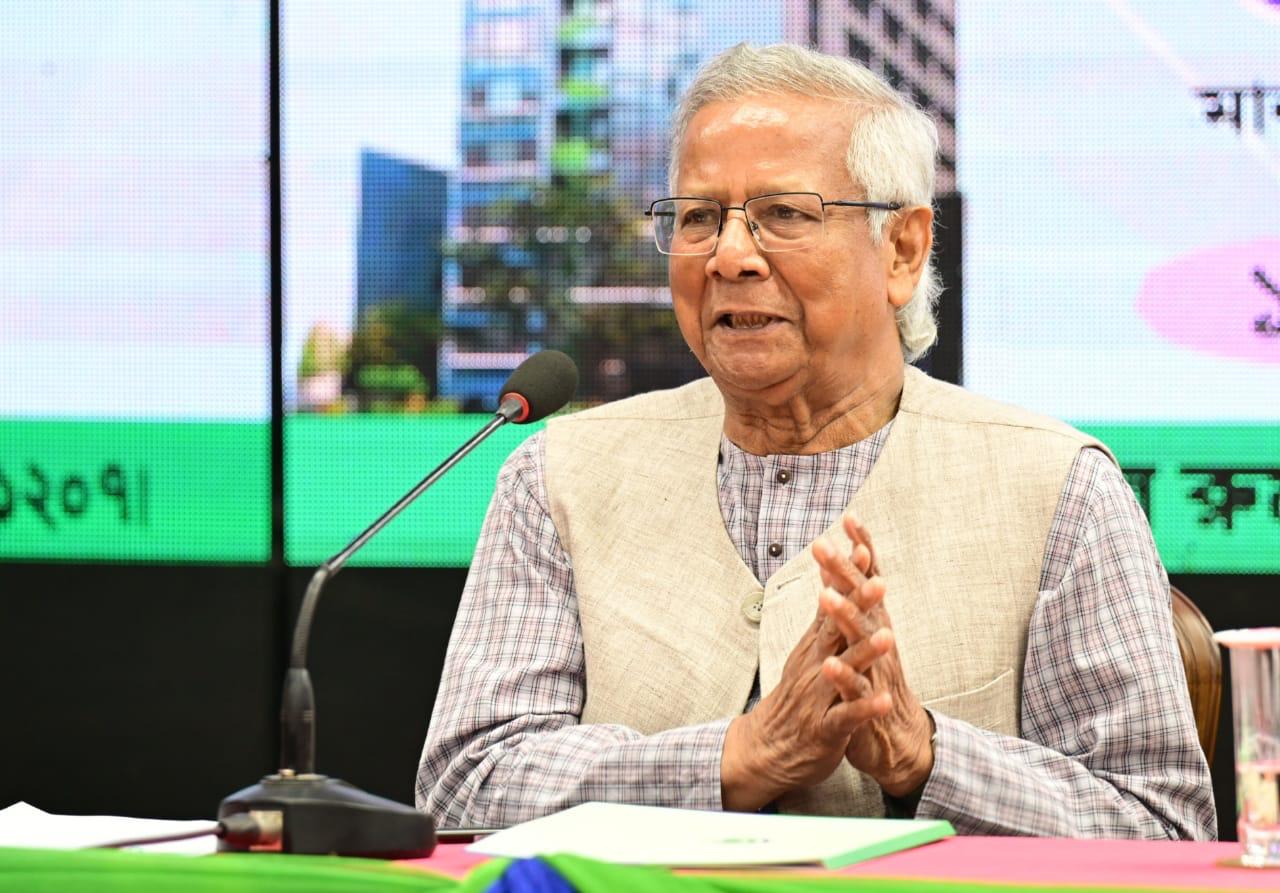It was only last August. He arrived as a symbol of hope. Yet, within just ten months, a fog of uncertainty has gathered around him.
As the Chief Adviser of the interim government, Dr. Muhammad Yunus had recently enjoyed unwavering support—from the military, political parties, and the public. Following the July uprising, student leaders and ordinary citizens held him in reverence and admiration.
But today, everything feels off-key. The dream of national stability he once inspired, the collective unity under one tent for change—that very foundation now feels precariously shaky.
A BBC Bangla report last night hinted at a critical turning point.
According to Nahid Islam, convener of the National Citizen Party (NCP), Dr. Yunus told him: “If I cannot work… from the place you brought me after a popular uprising, to bring change and reform—but if I’m being held hostage like this, I simply can’t carry on like this.”
His words reflect not just a top policymaker’s frustration but a rupture in a social contract. Once the “harbinger of change,” he now appears as the face of political fatigue.
The question now: does he truly want to resign—or was he merely venting to his “recruiters,” hoping they would fix things?
After Sheikh Hasina’s downfall in August 2024, Bangladesh reached a pivotal crossroads. A seemingly “neutral” administration was formed under student leadership and the military’s shadow. Yunus was brought in at the public’s call and entrusted with governing the country and organising a fair election—an election that required substantial reform.
The early days were full of promise: economic revitalisation, administrative discipline, anti-corruption drives—at the centre of it all was the pledge to build a “new Bangladesh.” But that vision proved short-lived.
Politics, as ever, abhors a vacuum.
The once-sidelined largest political party inevitably re-entered the field. Their people began appearing in administrative roles, either placed there directly or elevated by civil servants anticipating the next ruling power. At the grassroots, they revived their organisational structure. A natural move in power politics, but with a deeper motive: uprooting the Awami League’s long-entrenched financial and organisational networks.
Meanwhile, the NCP—initially branded the “third force”—pursued its own narrative and goals: 1. Erode public support for major parties. 2. Delay elections to buy time and build strength.
While they had partial success with the first, the second strategy brought them to the brink of collapse.
By then, key segments of the administration, police, and local government had concluded that the interim rulers weren’t the real contenders for long-term power. And so, the old political order began to return. The NCP found itself increasingly isolated. Dr. Yunus, who once embodied liberal reform, became mired in political stagnation.
In this backdrop, the positions of the BNP, Jamaat, and the NCP grew ever more entangled.
The BNP believed the NCP had hijacked the political fruits of its long struggle. Jamaat, initially a quiet participant, grew uneasy for various reasons. The NCP itself suffered an identity crisis—its “ideological revolution” devolved into internal conspiracies.
Ultimately, the quiet decision to delay elections—though unspoken—proved a fatal error, leaving a permanent stain on the political stage. What was once a dream of transformation is now crushed under the weight of reality. Dr. Yunus’s leadership has lost momentum, and his contemplation of resignation feels like the final sunset of lost potential.
Now blame is cast—on the military, on neighbouring states, even on remnants of the old regime. But the truth is, this crisis stems from the interim government’s own decisions. They gambled, and before they could grasp the stakes, everything slipped away.
Bangladeshi politics has once again shown: beginning with ideals does not guarantee a glorious end. The weariness in Dr. Yunus’s voice is not just personal—it echoes a failed optimism. A government born of promise has undermined its own foundations.
And then there’s the critical misstep: the current administration has become entangled in a quiet but growing conflict with the military—now clearly visible. A wall of mistrust has formed between civilian authority and military support. This isn’t just an administrative dispute; it’s a volatile equation where civilian leadership is playing with fire.
If this conflict escalates, it won’t just threaten the government—it could shake the entire system of governance. History teaches us: when rifts form with the military, governments never win. What is lost is democracy, security, and the roadmap of dreams.
Let politics not forget: military power is fire—and when fire turns inward, the state doesn’t just burn, it collapses.


